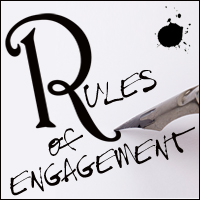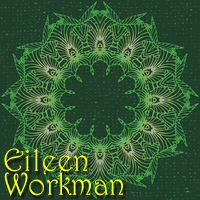.
 A blog for fiction writers and impending writers. An editor’s perspective.
A blog for fiction writers and impending writers. An editor’s perspective.
• Next post • Previous post • Index
Active Writing (Part 1): Active Voice
When I’m editing a work of fiction, I look for active writing—the life of a novel—on three distinct levels: 1. Voice. 2. Language. And, 3. Plot.
Active writing…the antithesis of passive writing. Friends who write and creative writing teachers, editors and agents, publishers and critics and helpful relatives at Thanksgiving dinner—they’re always imploring us to “Write active, not passive.” So what part of the creative writing process—voice, style or composition—should continually sparkle with activity?
The answer is: Yes, yes and yes. All of the above.
As writers, we should strive to constantly, continually push a character toward conflict, or else pull her away again. Rule #8: Keep characters in motion—either rushing toward action or retreating again. For instance:
We’re either pushing our lovers toward everlasting happiness, or else dragging them away, toward the heartbreak of loneliness.
We’re pushing our swashbuckling adventurer toward finding that buried treasure, or wrenching her away again, thwarted by a shipwreck or a raging storm or a bout of cholera.
We’re pushing an intrepid band of Hobbits toward Mount Doom, or dragging them away (…and again and again and again and again).
Or think of such continual movement this way: A novel is like an aardvark, a living creature that must both inhale and exhale to survive. Both actions are equally important for survival. Pushing forward is a fictive inhalation: plot driven, visually stimulating and action-oriented. Pulling away is fictive exhalation: Character-oriented; an emotional, thoughtful, psychological or spiritual response.
For instance:
Inhale: A thousand snarling, brain-craving zombies lurch through a dark tunnel, hungry for you and your family. At the other end, you find the tunnel hopelessly blocked! But, wait! You discover a service hatch! While you all scramble safely through that well-placed emergency exit, Aunt Mildred trips over her shoelaces, falls and gets munched. (An inhalation scene is typically visually rich and plot-oriented. A battle. A hot romance. A mystery revealed. A chase. A munched aunt.)
Exhale: Sobbing afterwards, you and your family mourn poor Aunt Mildred. Still, for the moment you’re safe and sound! Time for a nap. (An exhalation scene is typically informational and character-oriented; poignant or empathetic, revealing or mysterious. An important conversation, an inner monologue. A nap.)
But, wait! Suddenly you remember that your late Aunt Mildred had been carrying your only map to the Zombie-Free Safety Zone! Without that map, you’re toast. Overhead, thunder rumbles ominously. Time to push forward toward unknown horrors. Time for another deep inhalation!
See a pattern developing? As writers, if we’re not constantly pushing or pulling, inhaling or exhaling, we’re miring the plot, our characters, in mundanity. Passive Writing (as opposed to Active Writing) is pretty much total exhalation. Ask an aardvark to exhale continually for 300 pages and what happens? Right. Dead as a doornail.
•
Another crucial element of Active Writing? Remember the age-old, somewhat obtuse and often marginalized basic fiction-writer’s adage: Show, Don’t Tell? Yes, the axiom remains a valid reminder to allow readers to emotionally experience (rather than simply observe) your story. New writers often overtly auto-focus on plotting—that is, in getting the reader from here to there, and ultimately do so as quickly as possible, and with very little sense of style, wit and panache. In that relentless drive to write a ‘complete’ plot, those same writers forget about those equally important attributes: scene-setting and character-development.
Simply put, Show, Don’t Tell is a reminder to readers to stop and smell the roses along the way. Meaning… show the reader the gleam of a diamond, a glint of hard steel, the sweet fragrance of new blossoms in the spring—and not dispassionately tell us, it’s a rock, it’s a sword, it was warm.
When showing, not telling (essentially, using active, not passive voice), the writer’s relying on a bare-bones, superficial sort of prose. Repetitive, inclusive passive voice produces very little excitement. Active voice greatly enhances a book’s enthusiasm and exuberance.
.
• Next post • Previous post • Index
.


 As a writer, I’m deeply aware of how wonderful it feels to be contacted by someone who’s read my work and felt moved enough by my ideas to reach out and let me know how much I’ve touched them. That’s why, as a reader, I’ve personally never been shy about reaching out to those authors whose works have in turn touched my own heart, to let them know that their effort has not been in vain.
As a writer, I’m deeply aware of how wonderful it feels to be contacted by someone who’s read my work and felt moved enough by my ideas to reach out and let me know how much I’ve touched them. That’s why, as a reader, I’ve personally never been shy about reaching out to those authors whose works have in turn touched my own heart, to let them know that their effort has not been in vain.